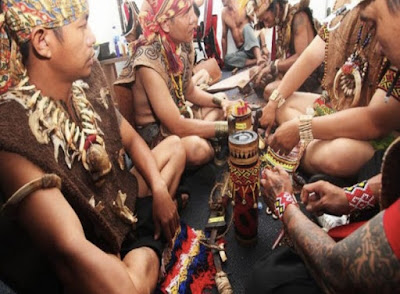From the Lemba Leaf Sheet, the Ngaju Dayak Tribe Vests Are Created
The oversized vest of the Ngaju Dayak people is made of ox leaves. They believe that the trinkets that decorate the vest are an antidote to evil things.
If you are called the Dayak Tribe, what is pictured in your mind? Beads, headdress in the form of feathers, then? Clothing in the form of an ornate vest and beads in the form of mutes.
Okay. There is a vest called Sangkurat. Yes, that's the vest of the Dayak Ngaju tribe in Central Kalimantan. Don't imagine that vest made of your cloth, Millens. Then?
Quoted from IndonesiaKaya via GNFI, Sangkurat is a garment in the form of a vest, made of nyamu leather or calf leather. Lemba or what is known as the areca nut quail tree is a type of plant that grows in clumps. This plant is usually found in humid areas that are not exposed to direct sunlight.
Lemba leaves are oblong and green. The leaves are very tough and strong. Therefore, it is only natural that the leaves are used as raw material for making vests.
But of course not just any leaves can be used as the raw material for the vest. The leaves should be about 50-60 cm long and 15-17 cm wide. As a leaf that has a lot of fiber on its surface, Sangkurat can last up to decades.
The cow leaves that have been knitted into a vest are then decorated in such a way using various knick-knacks. Patches of these trinkets are taken from pangolin skins, coins, buttons, beads, to objects deemed to have magical powers (amulets).
The decoration is not without purpose, lo. The Dayak Ngaju people believe that the decorations on the Sangkurat can protect them from evil influences or other people who want to do evil.
Etymologically, Sangkurat comes from the word Sangka which means barrier or buffer. Apart from being used when fighting, the Dayak Ngaju tribe also made this outfit an oversized outfit that is often worn in various ceremonies such as traditional weddings. Moreover, the Dayak Ngaju feel more manly by wearing Sangkurat vests, moreover they believe that by wearing Sangkurat, they will be free from anything that can destroy themselves.
